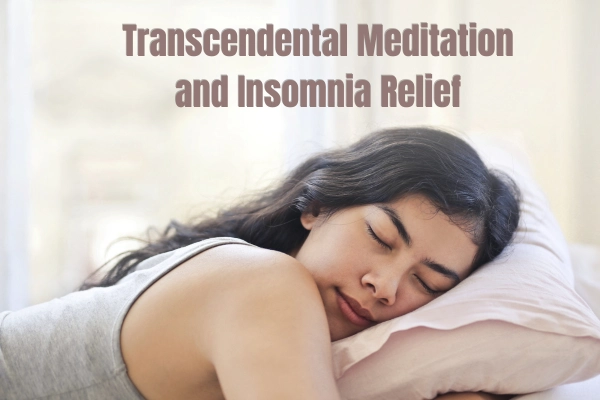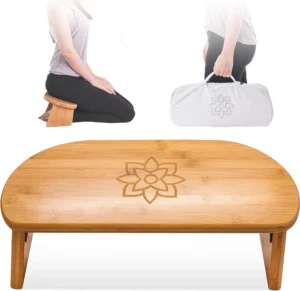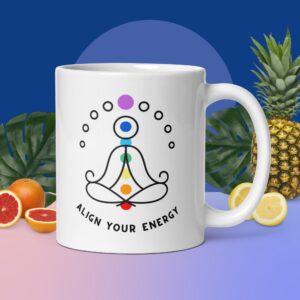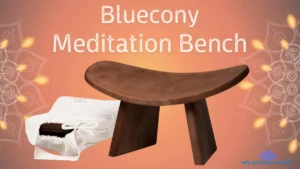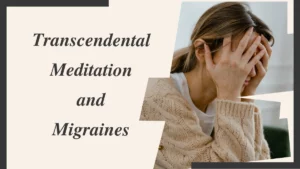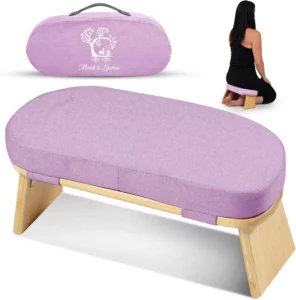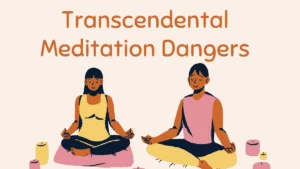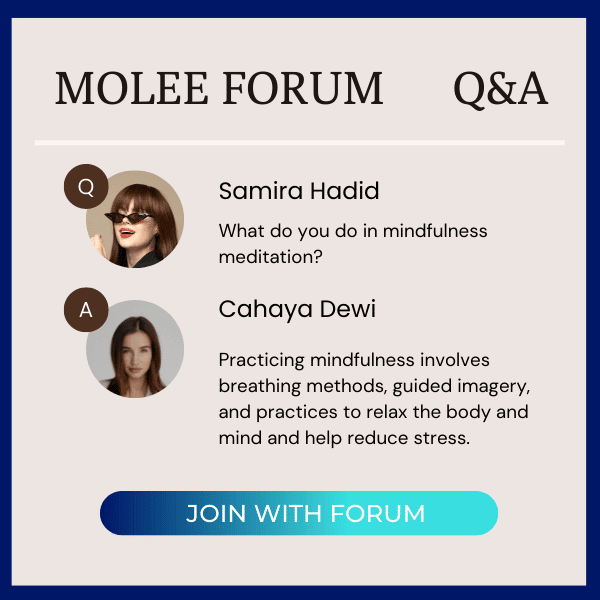Table of Contents
Are you having trouble sleeping? Many people struggle with not getting enough sleep at night.
But what if there’s a way to help? This article explores how something called transcendental meditation might be the answer to your sleep problems.
We’ll look at why some people can’t sleep well and how transcendental meditation could make a difference. By learning about the scientific facts behind insomnia and the benefits of transcendental meditation, you might discover a new way to finally get the rest you need.
So let’s dig into uncovering the relationship between transcendental meditation and insomnia.
Transcendental Meditation
Transcendental Meditation (TM) is a form of silent mantra meditation developed by Maharishi Mahesh Yogi. Among its many advocated advantages, TM is said to offer significant improvements for individuals experiencing insomnia, a sleep disorder characterized by difficulty falling and/or staying asleep.
The foundation of Transcendental Meditation lies in its core principles, which emphasize stress reduction, self-development, and accessing deeper states of consciousness. Unlike other forms of meditation that require concentration or contemplation of thoughts, TM is characterized by effortlessness and simplicity.
The practice intends to settle the mind into a state of “transcendental” awareness, an experience beyond thought where individuals can achieve inner calm.
The transcendental meditation technique begins with the individual sitting in a comfortable position with eyes closed. They then silently repeat a specific mantra given to them by a certified TM instructor.
This mantra is a sound without meaning, used to facilitate the transition from active thought to a more restful state of awareness. The meditation session is typically 20 minutes long and does not involve any forced concentration, making the experience natural and pleasant.
Read our detailed article on TM and Dementia , Alzheimer’s Disease.
Insomnia

Insomnia is a prevalent sleep disorder characterized by difficulties in falling asleep, staying asleep, or obtaining restorative sleep despite adequate opportunity to do so. This section explores its causes, types, symptoms, relationship with anxiety, and its overall impact on health.
Causes of Insomnia
There are various reasons why an individual might experience insomnia. These include stress, irregular sleep schedules, poor sleep habits, mental health disorders such as depression and anxiety, physical illnesses and pain, medications, neurological problems, and substances like caffeine and alcohol.
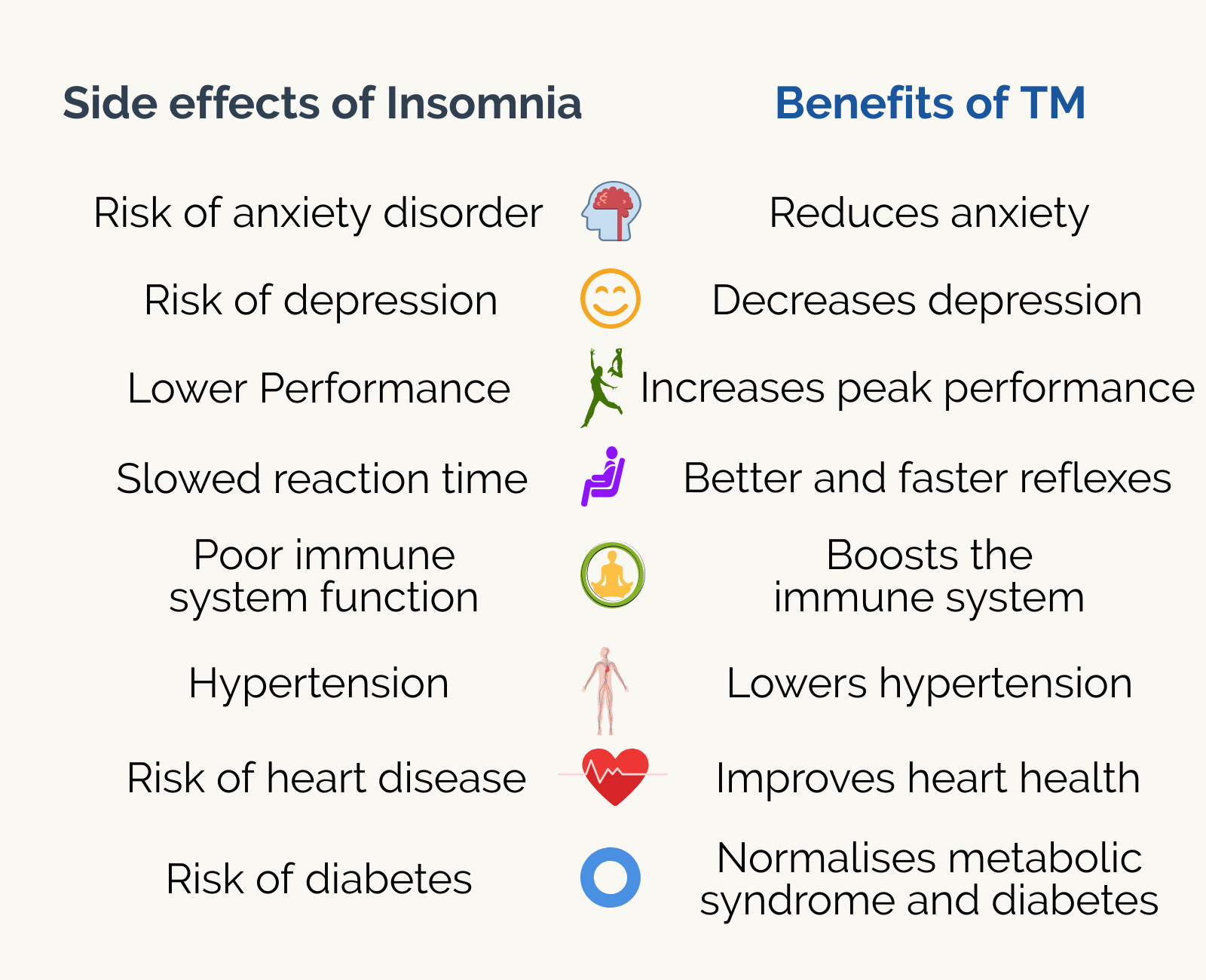
Types of Insomnia
- Acute Insomnia: A brief episode often triggered by a specific event.
- Chronic Insomnia: Ongoing sleep issues, occurring at least three nights a week for three months or more.
- Primary Insomnia: Sleep problems not associated with other health conditions.
- Secondary Insomnia: Sleep disturbances resulting from other medical conditions.
Symptoms of Insomnia
- Difficulty falling asleep
- Waking up during the night
- Waking up too early and being unable to fall back to sleep
- Feeling unrested after a night’s sleep
Insomnia and Anxiety
Insomnia and anxiety often co-exist. Anxiety can exacerbate sleep problems by increasing the physiological and psychological arousal states that interfere with sleep. Conversely, a lack of sleep can contribute to an increase in anxiety levels.
Effects on Health and Well-Being
Chronic insomnia can lead to various negative health outcomes, including:
- Increased risk of depression and anxiety
- Impaired cognitive function
- Increased risk of chronic diseases
- Decreased quality of life
What frequency cures insomnia?
There is no one-size-fits-all frequency for treating insomnia; it often requires a personalized approach. Treatments may include Transcendental Meditation as a natural solution, cognitive-behavioral therapy for insomnia (CBT-I), and, in some cases, medication. Lifestyle changes and sleep hygiene practices are also effective strategies for many individuals.
Research on TM and Insomnia
Transcendental Meditation (TM) has been evaluated in clinical studies for its effects on insomnia, revealing that this practice may contribute to better sleep quality.
Scientific Research | Efficacy of Transcendental Meditation to Reduce Stress Among Health Care Workers
A randomized clinical trial involving healthcare workers indicated that a regular TM practice over three months could decrease psychological distress. Although the reduction in psychological distress was not significantly greater than that of the control group, the study suggested a trend toward improvement in those practicing TM.

At 3 months, the TM group showed bigger improvements compared to the control group in emotional exhaustion, insomnia, and anxiety. Specifically, emotional exhaustion decreased by 8.0 points for TM versus 2.6 points for the control. For insomnia, the TM group decreased by 4.1 points while the control decreased by 1.9 points. Additionally, anxiety decreased by 3.1 points for TM and 0.9 points for the control. Moreover, 92.7% of the TM group stuck to home practice, totaling 38 participants.
Further details on the trial can be found in the Journal of the American Medical Association Network Open.
Analysis of Sleep Quality Improvements
Quantifiable improvements in sleep quality have been associated with TM practice. Specific studies point to a reduction in insomnia symptoms by 30% to 65% as measured by standard scales. Veterans, who often suffer from Post-Traumatic Stress-related insomnia, report improvement in sleep as one of the immediate benefits of starting TM, with positive changes sometimes noted within days.
These findings are supported by research outlined on the TM for Veterans website. Additionally, mindfulness-based stress reduction programs, which include TM, have been reported to aid in insomnia, although cognitive behavioral therapy remains a strong comparative method for addressing this sleep disorder.
Can Transcendental Meditation help with insomnia?
Transcendental Meditation (TM) is reported to be an effective method to ameliorate symptoms of insomnia, fostering a state of deep relaxation which may help in improving sleep quality.
How TM Reduces Insomnia
Transcendental Meditation induces a state of restful alertness that has a de-exciting effect on the nervous system, leading to reduced stress levels. Research suggests that with regular practice, TM can decrease the time it takes to fall asleep and increase the quality of sleep. For those experiencing insomnia, TM has been shown to help by creating deep inner calm and facilitating the transition to sleep.
How long to meditate for insomnia?
Meditation sessions for insomnia relief typically last 20 minutes and are done twice a day – once in the morning and once in the afternoon or evening. It is recommended to maintain consistency in practice to see improvements in sleep patterns.
Some individuals report immediate sleep quality improvements after adopting Transcendental Meditation. However, the benefits are typically cumulative, emphasizing the importance of ongoing practice.
Practical Guide to TM for Insomnia
Transcendental Meditation (TM) can aid in improving sleep quality for individuals with insomnia. This section offers detailed instructions on how to use TM as part of an effective bedtime routine.
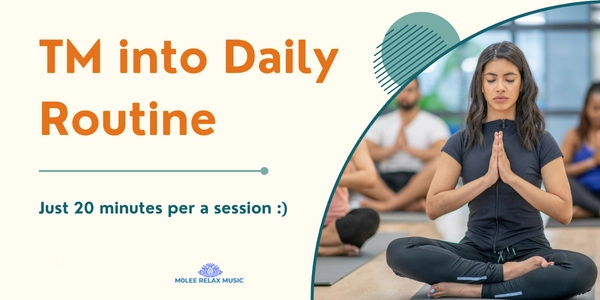
Step-by-Step Instruction
- Find a Comfortable Space: Locate a quiet and comfortable place to sit, free from interruptions.
- Allocate Time: Set aside 20 minutes, twice daily, preferably in the morning and evening.
- Sit with Eyes Closed: Sit shut and take a few deep breaths to start the relaxation process.
- Use a Mantra: Silently repeat the mantra given to you by a certified TM instructor, designed to guide your mind inward.
- Practice the Technique: Continue the technique as taught by a TM teacher, allowing thoughts to come and go without judgment.
- Slowly Conclude: After 20 minutes, stop repeating the mantra, and sit for a couple of minutes before opening your eyes.
Incorporating TM into Nightly Routines
- Schedule Regularly: Integrate TM into your nightly routine by practicing at the same time each evening.
- Create a Pre-TM Routine: Engage in calming activities, such as reading or listening to soft music, before beginning TM to signal to your body that it’s time to wind down.
- Post-TM Calm: After practicing TM, maintain a tranquil atmosphere. Use dim lighting and continue to engage in low-energy activities to enhance the effects.
- Avoid Stimulants: For best results with TM, avoid caffeine and electronic devices in the hours leading up to bedtime to prevent disruption of the relaxation achieved through meditation.
By following these guidelines and incorporating TM into your evening, you can mitigate the effects of insomnia and enhance overall sleep quality.
Personal Experiences with TM on Insomnia
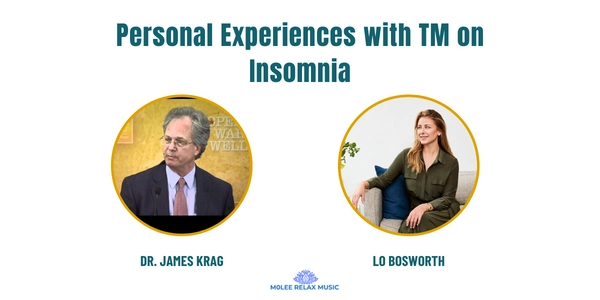
Individuals practicing Transcendental Meditation (TM) report varying degrees of improvement in their insomnia. These case studies provide insight into the potential benefits of TM for those seeking relief from sleep disturbances.
Real Testimonials show how TM affects Insomnia
“There are many reasons for insomnia, but the most frequent cause is anxiety and stress. Of course, it is possible that some practitioners of the Transcendental Meditation technique can occasionally have the problem of insomnia. However, since the TM technique helps lessen stress, most people with insomnia who learn the Transcendental Meditation program find that it becomes less and less of a problem.” Dr. James Krag
“I had terrible insomnia, and about a year ago I started doing Transcendental Meditation (TM). After four days of doing TM, I could suddenly sleep.” Lo Bosworth – Author, Entrepreneur
“After my first week of meditation, I was able to sleep. It’s like I was living in a fog of war and TM cleared the fog, allowing me to see things clearly. My day-to-day functions became clearer.”
— Vietnam War Veteran
Challenges and Considerations
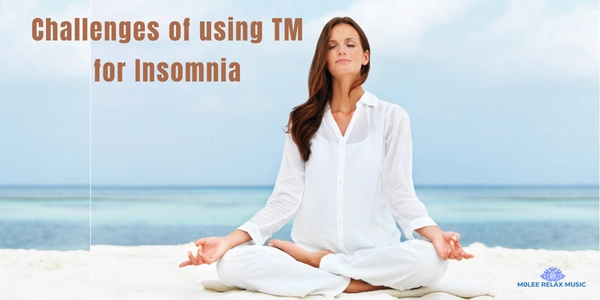
When exploring the use of Transcendental Meditation (TM) for managing insomnia, individuals must navigate skepticism and understand the technique’s limitations. This section will address critical challenges and considerations associated with TM as a potential solution for insomnia.
Addressing Skepticism
Transcendental Meditation, despite being practiced for decades, faces skepticism from parts of the medical community and potential practitioners. Skeptics often cite a lack of understanding of the mechanisms behind TM and the potential for placebo effects. It is important to acknowledge this TM-related skepticism, as it may impact an individual’s commitment to the practice and subsequent results.
Limitations of TM for Insomnia
Transcendental Meditation should not be viewed as a universal cure for insomnia. Certain critical points highlight the technique’s limitations:
- Individual Variation: Responses to TM can vary greatly between individuals. Some may experience significant improvements in sleep quality, while others might notice minimal changes.
- Underlying Medical Conditions: TM may not adequately address insomnia caused by underlying medical conditions. For such cases, medical treatment should be sought.
- Complementary Practice: Experts often recommend TM as a complement to other treatments rather than a standalone solution, reinforcing that individuals should consider a holistic approach to managing insomnia.
By addressing skepticism and understanding the limitations, practitioners can set realistic expectations for the utilization of TM in the treatment of insomnia. It is better to always seek the advice from your physician.
Read our article on transcendental mediation and depression from here.
Final Thoughts
In conclusion, studying Transcendental Meditation (TM) and how it affects sleep problems like insomnia gives hope for better rest. Learning about what causes insomnia shows how TM could be a helpful solution. TM, backed by research, seems like a good way to deal with insomnia.
Understanding how TM works shows it could help people sleep better. This shows that TM might be a positive way to improve sleep. Research on TM and insomnia may help more people have better sleep, offering a brighter future for those facing sleep struggles.
FAQs on Transcendental Meditation and Insomnia
Does meditation help with insomnia?
Yes, meditation, including Transcendental Meditation (TM), can aid in conquering insomnia by calming the mind and promoting relaxation, potentially improving sleep quality. It shows that TM reduces insomnia by approximately 30%.
Is TM better than sleep?
TM is not a substitute for sleep; instead, it complements sleep by reducing stress and enhancing overall well-being, offering a supportive practice for a balanced lifestyle.
Why not sleep after meditation?
It’s advisable not to sleep immediately after meditation to avoid disrupting the natural wake-sleep cycle, as the body and mind might be in a state of relaxation, making it challenging to fall asleep.
Why is TM better than other meditation?
TM stands out due to its personalized mantra-based technique, simplicity, and emphasis on effortless practice, making it appealing and effective for many seeking meditation methods.
What happens to your brain during Transcendental Meditation?
During Transcendental Meditation, the brain enters a state of deep rest while maintaining alertness, promoting heightened coherence and integration across various brain regions, and fostering holistic brain functioning.


